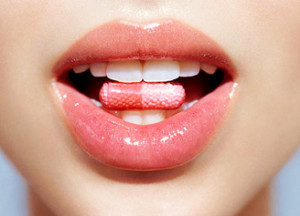 Even when a teenager delivers, that it happened for the first time and will not happen again, we should turn to a specialist.
Even when a teenager delivers, that it happened for the first time and will not happen again, we should turn to a specialist.
Drug addiction is a fatal disease. The sooner we start therapy, the greater the chances of recovery.
Parents are most often shocked. But they shouldn't scream, threaten to be thrown out of the house. It will only worsen the situation, the young man will close in on himself. Admittedly to 18 years of age, it can be treated under duress, but it seldom gives good results. It is better to take care of him and adhere strictly to the doctors' recommendations.
First step – gathering information.
It is best to visit a school psychologist or an inter-school pedagogical and psychological counseling center. If there is no such facility nearby, parents can contact a psychologist at their local mental health clinic. They should get advice or at least information there, where to look for help. If they are ashamed to talk directly about their problem, can call two nationwide free hotlines, to phone numbers: 0-800-20-117, open from Monday to Friday 10-20, on Saturday in hours 10-15 or 0-800-120-280, open from Monday to Friday 9-17.
Step two – diagnosing the disease.
A visit to the consultation point is free. The therapist or doctor decide on the basis of conversations with parents, whether the child is at risk of addiction, or already
addicted. Depending on this, is referred for appropriate treatment.
Child at risk – it's so, who tried the drug at least once (specialists say: experimented). Treatment consists of several months of psychological therapy in the clinic, during which the patient and the therapist look for reasons for escaping into drugs. They also learn, how to refuse dealers, plan a non-intoxicating future, based on self-esteem, rebuild ties with parents and the environment. Free individual or group meetings at the clinic are held several times a week. Parents are also covered by psychological care.
The child is addicted – it's so, who, after stopping the drug, succumbs to physical hunger, mental or both. In such a case, treatment must be carried out in a specialized center and preceded by detoxification. It is usually long, very difficult, always requires family support.
Step three – detoxification of the body.
A referral for detoxification is given by a doctor, which, depending on the physical and mental condition of the patient, chooses one of two methods. The first is to get rid of the drug from your body by abstaining from abstinence. The doctor prescribes measures to reduce hunger symptoms: pains, diarrhea, insomnia, bouts of cold and heat, pressure surges, heart rate, pounding heart, etc.. Treatment is free of charge in state clinics and hospitals. If parents use private medical assistance, the price of the treatment is 150-200 PLN (cost of visits and medications). The second method of detoxification is to flush the drug out of the body using drips. After the procedure, the patient feels very strong, lasting even 2 weeks of starvation symptoms. Because of this, many people stop treatment. Parents shouldn't break down, but persuade the child to make another attempt.
In state hospital departments, treatments are free, but the waiting time is very long (is from 1 do 3 months). You can also use the private, paid medical assistance. Treatment, carried out at the patient's home, takes 6 days and costs approx 1400 PLN. The doctor prescribes medications, and the nurse connects a drip and every now and then (usually 2 times a day) controls the patient's condition.
Parents should take the child to a rehabilitation center immediately after the procedure, where you should reserve a place well in advance (the waiting time is long and can be as long as six months).
Step four - long-term therapy.
It takes place in drug addiction centers. Stay and treatment are free of charge. Runs from 6 months to 2 years (this is the rehabilitation cycle), it requires patience and strict adherence to the established discipline. Drugs and alcohol are strictly forbidden in all centers, and mostly cigarette smoking. If the patient does not follow the rules, is sent back from the facility.
Psychotherapists work individually with patients. There are schools in the centers for children and adolescents, where patients normally learn and can get a profession. They also do cleaning work, they help in the kitchen, garden etc.. Being in a group of people experiencing the same problems, who understand the difficulties and do not condemn each other, gives you a better chance to build a new life.
Privileges – visit, correspondence, telephoning, passes – are determined individually and usually depend on the patient's state of health. If parents are worried and want to keep up to date with information about their child, can contact the guardian, who will always provide information. Recovering from a drug addiction is extremely difficult, it requires exceptional fortitude and sacrifice from patients and their parents. Parents should realize, that the child had a terminal illness, which will burden the family for many years and whose treatment will take a lot of effort.